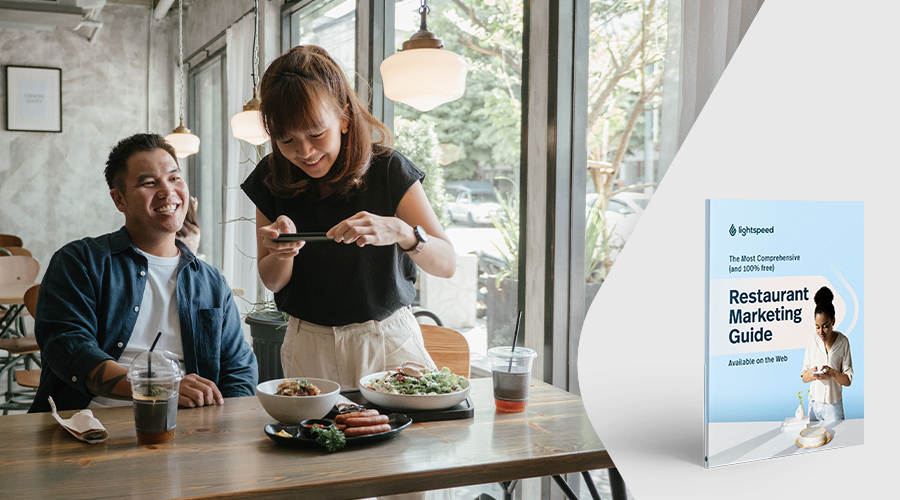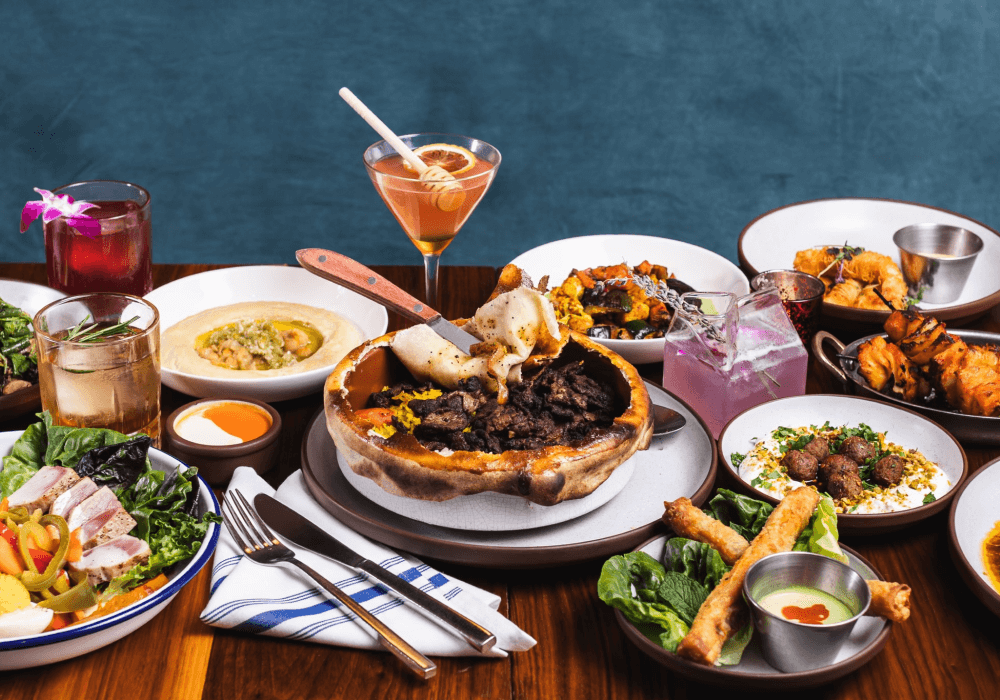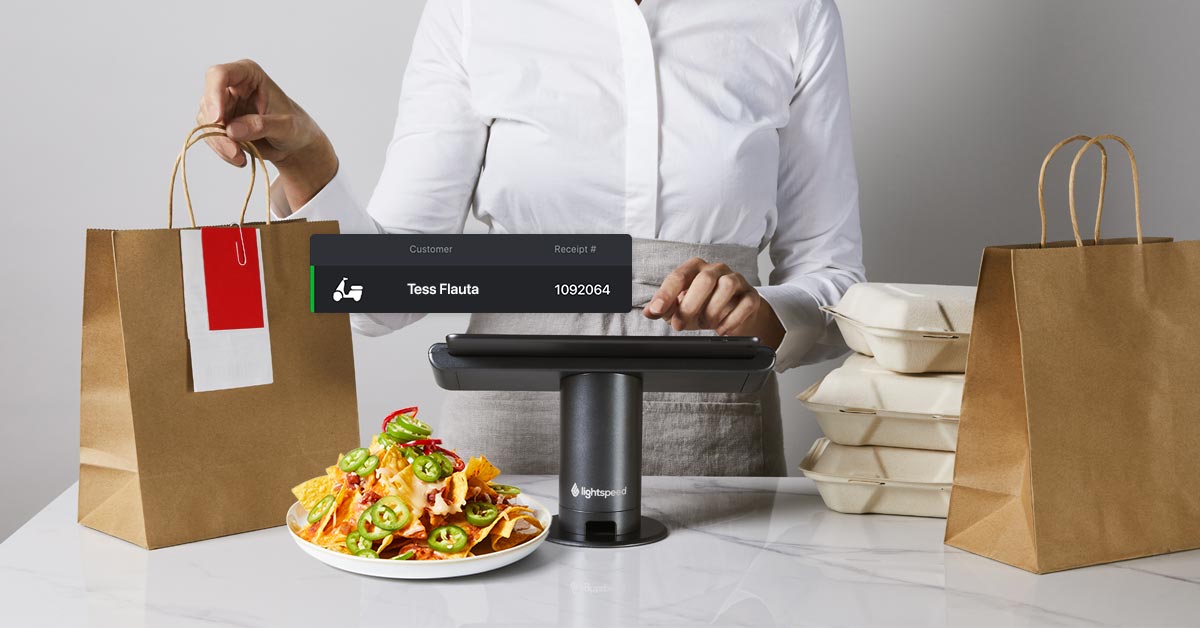
The restaurant industry moves fast. If you don’t look up every once in a while, you might just miss the new trends, tastes and technology that are transforming the industry. With the ever-evolving trends and changes to the hospitality industry, it’s become a full-time job just to keep up.
Maybe that’s why we’re seeing more restaurants hiring for a role that you’d traditionally see in major corporations: director of operations. Everywhere from two-location restaurants to 30-plus restaurant groups, director of operations is becoming an increasingly common and important role in hospitality.
We interviewed three masters of restaurant operations to give us some insight into:
- How restaurant directors of operations got their start in the industry
- What are the important qualities of someone in an operations role in a restaurant
- What a day-in-the-life of an operations role looks like
- Why the position is so crucial to a restaurant’s success
- What challenges are faced for someone in an operations role
Reach new customers and boost sales
From keyword optimization to social media, here's everything you need to know about today’s restaurant marketing tactics.

Representing restaurants across the country, our operations experts provided different perspectives from restaurant groups big and small.
- Jamie Cunningham: Director of Operations at Stay Golden in Nashville, TN.
- Colleen Simon: Chief Operating Officer at Homegrown Hospitality Group in Charleston, SC.
- Jordan Bright: Operations Manager at Food Fight Restaurant Group in Madison, WI.
How did you get your start in the restaurant industry?
Cunningham: I started working at a coffee shop in Nashville 10 years ago. I really liked restaurants because the systems made sense to me, so I suckered my boss into giving me an opportunity. I created a position where I was overseeing education and quality for all five locations and started learning about the restaurant business, how to price out items, costs and overhead labor.
During my next job, I started learning the hard stuff like payroll, invoicing, and other day-to-day things that keep the business on track financially. Now at Stay Golden, I’m dialing in systems and operations for two locations.
Simon: I’ve worked in the restaurant industry for over 20 years. I started as a server and bartender and eventually worked my way up into management before graduating from college. From there, I joined a franchise restaurant group based out of the New York Metro area for a large corporate-casual restaurant chain. I managed daily operations there for four years before being promoted to a regional training management role, where my main focus was opening up 15 of our restaurant locations.
I was later promoted to director of personnel and development and worked alongside executive and management teams to work on training and development functions. Eventually, that led me back into an operations role as director of operations for the 20 locations we operated. After 12 years with that restaurant group, I was offered an opportunity with my current group as chief operating officer.
Bright: I was working as a bartender in college and after graduation, a management path was planned out for me at Food Fight. Now, I’m the operations manager for eight of the 20 restaurants in the group.
What qualities do you think owners and managers should look for in hiring an operations role?
Cunningham: I think there are three big things to look for. First, they have to be a self-starter. They need to be able to be given a vision or goal outside of just a job description. Often, restaurant owners aren’t really present on the floor, so they need to be able to trust someone. The second important quality is very high-level communication skills, and they also have to be very organized. There are so many moving pieces in a restaurant.
Simon: Skillset is extremely important, but it makes a big difference if someone truly understands hospitality. We see a lot of great applicants and are fortunate to work with some great leadership in our group that truly impresses this upon the teams operating our restaurants. Integrity is another quality that has made all of the difference in our success. Training someone to make the right decisions all of the time, not just when someone is looking, is something we look to do as well.
Bright: You have to have an immense amount of confidence in your knowledge base. Another important quality is knowing that every business is a relationship business. I stay focused on building relationships over time and know that nothing else matters if I don’t have that piece. The work you’re really doing is building relationships with your employees, helping them build relationships with their guests, and then making sure that your food and beverage is at a high quality.
You have to have strong financial acuity and you have to know food and beverage, but if you’re not building the relationship with your teams, if you’re not just problem solving, and using those skills, you’re not going to be super successful.
Restaurant Director of Operations Job Description
|
What does a typical day look like for someone in an operations role?
Cunningham: Every day is different. It’s different season-to-season and right now we’re working on building our private events business. So I have a focus on one large-scale goal, then my days differ based on the current needs of the restaurant. Often, that’s fixing major points of friction in our operations that are slowing down staff or causing negativity.
Simon: Our directors of operations are expected to operate at a high level. The position requires a multi-unit experienced individual who understands the P&L and operating within the parameters of budgets. This position is responsible for daily communication across many teams (accounting, operations, human resources, and executive management). They are ultimately responsible for ensuring that inventory and ordering is done with integrity at the store level.
They interview, hire, train and manage new management. They also are involved in the local store marketing initiatives, ensuring we are operating within the parameters of safe service, of both food and alcohol. Most importantly, a director of operations should be developing the teams from within so that we can continue to grow with talented, seasoned leadership.
“I love developing talent. The reason why I got to where I am today is because of some really wonderful mentors that took a chance on me and spent time on me—they took me from nothing to something. And so there’s nothing better than to see people with a willingness to learn and a hard work ethic and being able to teach them some of the things that I was lucky enough to learn.” — Peter Litvinenko, Head of Food and Beverage, Life House Hotels
Bright: None of my days are typical. We really treat our operations managers as a kind of a CEO of their own group. I bounce around between eight restaurants, so I’ll be dealing with marketing for one restaurant while also trying to dial in on a labor cost issue at another restaurant. I do make sure that I actually get to work with management teams and our executive chefs every day because that’s the part that’s actually fun and rewarding.
Restaurant Director of Operations Responsibilities
|
What value do you believe operations roles bring to a restaurant?
Cunningham: I think it’s helpful for general managers to know that they have one point of contact. As a business partner and somebody who is overseeing both locations, I’m obviously highly interested in the restaurant succeeding and growing. Even in our city, East Nashville has a different market than our Sidco location. It’s so weird because they’re only two and a half miles apart, but it’s a completely different demographic. In my role, I’m able to look at both locations and strategize because I have information coming at me from both locations, and I know what each location needs.
Simon: There is a great value to having operators in multiple locations. There is a broader view and there is the ability to successfully train, coach, and develop your team and give them career paths that are available outside their own home location. The communication and sharing of best practices make this role important to the success of individual locations but ultimately, it helps to grow the business.
Bright: I’m able to identify inconsistencies across my restaurants. Routinely things come up that I have no idea how to solve, but it happens so often, pretty confident I’m going to figure out a way to solve it or find someone that can help me solve it.
Editor’s note: with a multi-location POS platform, directors of restaurant operations can quickly and effectively identify what’s driving success in one location and replicate it in others with shared data across locations.
The importance of clear, quality data in restaurant operations
Clear, quality performance data is critical for restaurants and a restaurant’s director of operations, who need to be able to transform that data into strategies and actions that will benefit and grow the business.
But you already knew that. At this point in history, nobody’s disputing the importance of data—but they may not be leveraging it as they could because they’re either:
- overwhelmed by too much, irrelevant or contradictory data from various sources; or
- not equipped to easily and automatically collect the data they need to drive the business forward
Unfortunately—or fortunately, depending on who you ask—the days of getting away with making business decisions based on intuition alone are over. Not only because our gut feeling can be wrong, but because your biggest competitors are already leveraging data to tackle industry challenges and strengthen their position in the market.
Comprehensive (and ideally visual) data, such as Lightspeed’s Magic Quadrant, drives informed decision-making, enhances operational efficiency and empowers restaurants to upgrade the customer experience.
With advanced insights into your restaurant sales, menu, product mixes, staff performance, and way more, directors of restaurant operations can:
- Build a strong front of house team (that knows how to sell)
- Empower servers to make better recommendations
- Accurately forecast inventory and labor needs
- Control labor costs and improve COGS
- And a lot more
“You can really drill down and see exactly what was rung in within specific time restraints,” says Peter Marzulli, Director of Operations for 6R Hospitality—the restaurant group behind New York City’s beloved Miriam restaurants and 1803 NYC. “It helps us to optimize our labor and food costs and everything else.”
How Miriam uses Lightspeed to manage multiple locations with ease
Find out how Miriam restaurant (6R Hospitality Group) is growing with Lightspeed's one-stop multi-location POS platform.

What types of challenges do restaurant directors of operations face?
Cunningham: There are always big task lists. There is always all of the logistics. There are always things that need to be done. At the end of the day, I think my issues as a director of operations are the same as general managers and the same as shift leaders. People will always be our greatest asset and often our greatest burden. I don’t mean that in a bad way, but if you’re trying to take care of your people well, they work hard, you make them feel valued, their voice is heard and things like that—even in that scenario, things can go wrong.
Even when you’re working hard to do everything well and make sure you have a healthy culture, things still happen. The area where I’m spending most of my time: trying to make sure we’re doing business well and taking care of our team.
Simon: We operate eight different concepts across three states, so the challenge in keeping operations as streamlined as possible is important for us as a restaurant group. As we continue to grow and add to our workforce, it will be important to have the best technology available to us so we are able to make the best use of our time and resources.
Bright: The labor market as it sits right now is an interesting challenge. Finding and hiring talent—especially in our market—hasn’t been the easiest thing in the last two years. I think it’s challenged us to recommit to making the best work environment in the industry. There’s plenty of work to be done, but I think we’ve dedicated ourselves to finding some solutions to it and that’s paying off.
The importance of a multi-location POS for multi-location restaurants
Keeping operations streamlined is a key challenge for multi-location and multi-channel restaurants. That’s why a multi-location restaurant POS platform is non-negotiable for these operators—sophisticated operations need sophisticated tech solutions.
Imagine trying to improve efficiency using multiple programs and softwares spread out across a whole bunch of screens—not to mention juggling all of those passwords. It doesn’t make a lot of sense, does it?
A flexible and fully customizable restaurant platform centralizes data and helps simplify operations, such as inventory, accounting, online ordering and payments, helping restaurant directors ensure consistency and efficiency across multiple locations.
Real-time data powered by embedded payments enable accurate and up-to-date information on sales, inventory and customer data. Clear, visual performance data and reporting helps drive faster, better-informed decisions, empowering operators to identify trends, boost sales and revenue and execute effective strategies across multiple locations.
“For a multi-concept group, having everything together in one platform just makes sense. I can access all my data in one place rather than driving myself crazy.” — Peter Marzulli, Director of Operations, 6R Hospitality Group
Finding the right technology partner that’s committed to your success is a significant advantage to any ambitious restaurateur. Want to learn how Lightspeed can help you optimize your operations and simplify your day-to-day? Talk to a real person—a POS expert no less—today.
FAQs
What does a restaurant director of operations do?
A director of operations for restaurants oversees the daily activities of multiple restaurant locations. They ensure high standards in food quality, customer service and operational efficiency. Key responsibilities include financial management and budgeting, food and labor cost control, implementing technology, managing logistics, analyzing performance data and reports, and staff training and development.
What skills are needed for a restaurant director of operations?
Key skills required for the role of director of operations in a restaurant include strong leadership, financial acumen, relationship-building and problem-solving skills. Directors must be able to manage teams effectively, analyze performance data and execute strategies to improve efficiency and profitability. Experience in (and a deep understanding of) the food and beverage industry is crucial.
How can I advance my career as a restaurant director of operations?
Advancing in the role of restaurant director of operations can lead to higher positions within larger restaurant chains or corporate roles. Skills such as management and financial oversight are transferable to other areas within the hospitality industry or other sectors. Becoming an owner is also a potential path.
What challenges do restaurant directors of operations face?
Common challenges faced by a director of operations in a restaurant include (but are not limited to) managing food and labor costs, maintaining consistent service quality, adapting to market trends, managing logistics, hiring and developing talent in a tight labor market, and ensuring smooth communication (and good relations) between teams.
What are the qualifications required to become a restaurant director of operations?
Qualifications needed for the role of director of operations (restaurant) typically include extensive experience in the hospitality industry, strong leadership and financial management skills, and the ability to manage multiple teams and locations. A degree in hospitality management or business administration can help tip the scales in a candidate’s favor.

News you care about. Tips you can use.
Everything your business needs to grow, delivered straight to your inbox.


